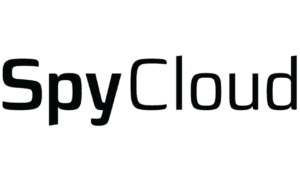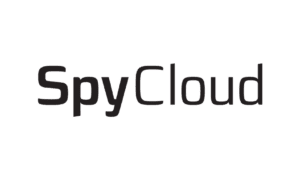Are online threats giving you sleepless nights? Worried about protecting your precious data from hackers and malware attacks? Look no further! In this comprehensive guide, we will navigate the complex world of antivirus software to help you choose the perfect shield for your digital fortress. Whether you’re a tech enthusiast or a cautious user who simply wants peace of mind, join us as we dive deep into the realm of cybersecurity and empower ourselves with knowledge on selecting the right antivirus software.
Introduction: Importance of having antivirus software for internet security.
In the digital age, our lives have become increasingly dependent on the internet. From online shopping to social media and banking, we are constantly connected to the online world. While this constant connectivity has made our lives easier and more convenient, it has also exposed us to numerous cyber threats. Without adequate protection, our personal information and sensitive data can be vulnerable to attacks from viruses, malware, spyware, and ransomware.
This is where antivirus software comes into play. Antivirus software is designed to detect, prevent and remove malicious software from your computer or device. It acts as a shield for your device against various types of cyber threats that could compromise your security.
Importance of Having Antivirus Software:
1. Protection Against Viruses:
The most obvious reason for having antivirus software is protection against viruses. Viruses can infect your computer through various sources such as email attachments, downloaded files or even by simply browsing the internet. These malicious programs can cause significant damage to your system by corrupting files and stealing personal information such as banking details or login credentials.
Antivirus software scans your system regularly for any viruses or suspicious activity and removes them before they can cause any harm. With real-time protection, it can also block infected files from being downloaded onto your system.
2. Prevents Malware Infections:
Malware is an umbrella term used to describe different types of malicious software including viruses, worms, Trojan horses, spyware and adware. Like viruses, malware infections can occur from various sources and can cause serious damage to your system. Some malware is designed to steal sensitive information, while others can slow down your computer or even take control of it.
Antivirus software is equipped with different layers of protection to detect and remove malware from your system. It not only scans for existing malware but also monitors your system for any suspicious activity that could indicate a potential threat.
3. Secures Your Online Transactions:
In today’s age, online transactions have become an integral part of our lives. Whether it’s online shopping, banking or paying bills, we are constantly providing our personal and financial information over the internet. This makes us vulnerable to cyber attacks such as phishing scams and identity theft.
With antivirus software, you can browse the web securely without fear of falling victim to these attacks. It encrypts your data and protects it from being intercepted by hackers, making it safe to conduct online transactions.
4. Protection Against Ransomware:
Ransomware is a type of malware that encrypts your files or locks you out of your computer until you pay a ransom to the attacker. It has become increasingly common in recent years and can be devastating for both individuals and businesses.
What is Antivirus Software?
Antivirus software is designed to protect your computer from malicious programs, also known as malware. This includes viruses, trojans, worms, adware, spyware, and more. These harmful programs can not only disrupt the functioning of your computer but also steal your personal information and compromise your online security.
In simple terms, antivirus software acts as a shield between your computer and any potential malware threats that may try to access it. It constantly monitors your system for any suspicious activity and takes action to remove or quarantine any detected threats.
How does Antivirus Software Work?
Most antivirus software works by using a combination of techniques to detect and eliminate malware from your system. Here are some common ways in which antivirus software operates:
1. Scanning: The most basic function of an antivirus program is to scan all the files on your computer for any signs of malware. It compares these files with a database of known virus signatures and flags them if they match.
2. Real-time Protection: To provide continuous protection against new and emerging threats, antivirus software includes real-time monitoring capabilities. This means it actively scans incoming data in real-time and analyzes it for any malicious code.
3. Behavior Monitoring: Many modern antivirus programs use behavior monitoring technology to identify potentially harmful actions taken by programs or users. For example, if you download a file from an unknown source that immediately starts making changes to critical system settings without permission, the behavior monitor will flag it as suspicious.
4. Firewall Protection:
Some antivirus software also includes a firewall component, which acts as an extra layer of defense against external threats. It monitors incoming and outgoing network traffic and blocks any unauthorized activity or suspicious connections.
5. Automatic Updates:
Antivirus software regularly releases updates to its virus database to ensure it can detect and protect against the latest threats. Many programs have an automatic update feature that keeps your software up-to-date without requiring manual intervention.
6. Quarantine or Removal:
When a threat is detected, antivirus software will either quarantine the infected file or remove it from your system entirely. Quarantining means isolating the file in a secure location where it cannot harm your computer until you choose to delete it.
Types of Antivirus Software: Free vs Paid, Traditional vs Cloud-Based.
In today’s digital landscape, having reliable antivirus software is crucial for protecting your personal and professional devices from malware, viruses, and other online threats. With the wide variety of options available in the market, choosing the right antivirus software can be a daunting task. One factor that often creates confusion among users is whether to opt for a free or paid version of an antivirus program, as well as whether to go for traditional or cloud-based software. In this section, we will delve into the different types of antivirus software available and their key features to help you make an informed decision.
1. Free vs Paid Antivirus Software:
Free antivirus programs are easily accessible and do not require any financial investment. They offer basic protection against common threats such as viruses, Trojans and spyware but lack advanced security features that may be present in paid versions. On the other hand, paid antivirus software offers more comprehensive protection with additional features such as firewall protection, email spam filtering and real-time monitoring. Some paid programs also include a VPN (Virtual Private Network) for added privacy while browsing online.
When deciding between free and paid versions of an antivirus program, it’s important to consider your specific needs and usage patterns. If you only use your device for basic browsing and don’t store sensitive information on it, a free version may suffice. However, if you use your device for tasks such as online shopping or banking or have valuable data stored on it, investing in a paid version would provide better protection.
2.Traditional vs Cloud-Based Antivirus Software:
Traditional antivirus software, also known as local antivirus, is installed and run on your device. It scans the files and programs on your device for any malicious code and removes them if detected. Traditional antivirus software requires regular updates to keep up with the constantly evolving threats, which can be time-consuming.
Cloud-based or online antivirus utilizes the power of the internet to protect your device against threats. Instead of being installed on your device, it runs remotely on servers managed by the antivirus company and uses the latest threat intelligence to scan your device for any malicious activity. This type of antivirus software is usually more efficient in detecting new threats as it constantly updates its database through real-time data sharing.
Which type should you choose?
Choosing between traditional and cloud-based software depends on various factors such as budget, technical knowledge, and usage patterns. Traditional antivirus programs are a one-time purchase whereas cloud-based solutions require subscription fees, making them more expensive in the long run. Additionally, traditional software requires manual updates while cloud-based solutions automatically update their protection measures.
Overall, both types of software offer adequate protection against threats; however, cloud-based solutions provide better real-time protection due to their constant updates. If you’re not comfortable with managing your antivirus software, a cloud-based solution may be a better option as it requires minimal user involvement.
Features to Consider When Choosing Antivirus Software: Real-time protection, Firewall, Malware detection and removal, etc.
When it comes to choosing the right antivirus software, it’s important to consider all of the features that will best protect your device from potential threats. Antivirus software is a crucial security measure for any computer or mobile device, as it helps to detect and remove viruses, malware, and other harmful programs.
One of the key features to look for when selecting an antivirus program is real-time protection. This means that the software continuously runs in the background and actively scans your device for any suspicious activity or malicious files. Real-time protection ensures that any threats are detected and stopped before they have a chance to cause harm to your device.
Another important feature is a built-in firewall. A firewall acts as a barrier between your device and external networks, monitoring incoming and outgoing traffic to block any suspicious connections. This helps to prevent hackers from accessing your personal information or infecting your system with malware.
Malware detection and removal capabilities are also essential in antivirus software. Malware refers to any malicious software designed to cause damage or disrupt normal computing operations. These can include viruses, worms, spyware, adware, trojans, and more. A good antivirus program will have advanced scanning techniques that can identify these types of malware on your device and effectively remove them.
Additionally, you may want to consider if the antivirus software offers additional features such as email scanning, phishing protection, and parental controls. Email scanning ensures that any emails with potential threats are identified before they reach your inbox. Phishing protection helps guard against fraudulent websites that attempt to steal personal information. Parental controls allow you to monitor and restrict access to certain websites, applications, or content for children.
Other factors to consider when choosing antivirus software include ease of use, system impact, customer support, and cost. It’s important to choose a program that is user-friendly and does not heavily slow down your device’s performance. Additionally, reliable customer support can be crucial in case you encounter any issues or need assistance with the software.
Ultimately, the best antivirus software for you will depend on your specific needs and preferences. It’s recommended to research and compare different options before making a decision. You may also want to consider trying out free trials or demo versions before committing to a purchase.
Factors to Consider when Choosing Antivirus Software
When it comes to choosing antivirus software, there are several factors that you should consider in order to ensure you make the right decision for your personal or business needs. In this section, we will discuss three important factors to keep in mind: compatibility, user-friendliness, and customer support.
Compatibility:
The first and foremost factor to consider when selecting an antivirus software is its compatibility with your operating system. Not all antivirus programs are compatible with every type of OS, so it’s crucial to check if the software can run on your device before making a purchase. Whether you use Windows, Mac, or Linux, it’s important to choose a program that is specifically designed for your system. This will ensure seamless integration and optimal performance.
Another aspect of compatibility to consider is if the antivirus software can run on multiple devices. With technology becoming increasingly mobile-oriented, it’s essential to have protection across all devices such as desktops, laptops, tablets, and smartphones. Many top-rated antivirus programs offer cross-platform compatibility options for users who require protection on various devices.
User-Friendliness:
Antivirus software can be complex with advanced settings and technical jargon that may not be easily understandable for everyone. That’s why user-friendliness is a critical factor in choosing the right antivirus program. A good AV application should be easy to navigate even for novice users while still offering advanced options for more experienced ones.
One way to determine user-friendliness is by checking out the interface of the software before purchasing it. Is it intuitive? Is it cluttered with unnecessary features that make it difficult to find what you need? Can you easily customize the settings to suit your needs? These are all important questions to ask when assessing the user-friendliness of an antivirus program.
Customer Support:
Inevitably, you may run into technical issues or have questions about the software you’ve purchased. In such instances, reliable customer support is crucial. Before choosing an antivirus program, research its customer support channels to determine their availability and responsiveness. Some companies offer 24/7 support through various channels like live chat, email, or phone. It’s also a good idea to read reviews or ask for recommendations from others who have used the software regarding their experience with customer support.
Top Antivirus Software in the Market: Description and review of popular software such as Norton, McA
With the increasing number of cyber threats and attacks, having a reliable antivirus software has become a necessity for every computer user. But with so many options available in the market, it can be overwhelming to choose the right antivirus software. In this section, we will review some of the top antivirus software in the market such as Norton and McAfee, and provide you with a detailed description and analysis to help you make an informed decision.
1. Norton Antivirus:
Norton is one of the most popular and oldest antivirus software in the market, known for its robust protection against viruses, malware, spyware, and other cyber threats. It offers comprehensive real-time protection while browsing online or downloading files from external sources. One of its key features is its advanced firewall that constantly monitors network traffic to block any suspicious activity.
Pros:
– Advanced scanning engine
– Real-time protection against online threats
– User-friendly interface
– Strong firewall protection
Cons:
– Can slow down system performance during scans
– Requires regular updates
2. McAfee Antivirus:
McAfee is another well-known name in the world of antivirus software. It offers complete protection against all types of malware including ransomware, Trojans, viruses, spyware, adware and more. Its unique feature “Ransom Guard” provides extra security by detecting suspicious activities related to ransomware attacks.
Pros:
– Comprehensive virus detection rate
– Real-time protection against new and evolving threats
– Ransom Guard feature for added security
– Low system impact during scans
Cons:
– Can be expensive compared to other antivirus software
– Some advanced features may require additional configurations and may not be user-friendly for beginners
3. Avast Antivirus:
Avast is considered one of the best free antivirus software available in the market. It offers a wide range of security features including real-time protection, firewall, malware detection, and phishing protection. It also has a secure browser extension that blocks malicious websites.
Pros:
– Free version available with basic protection
– User-friendly interface
– Offers multiple layers of protection
– Low system impact during scans
Cons:
– Constant pop-ups to upgrade to paid version can be annoying
– May not provide as much advanced features as other paid software
4. Kaspersky Antivirus:
Kaspersky is a well-established antivirus software known for its top-notch protection against all types of cyber threats. It uses advanced technology to scan and detect viruses, malware, and spyware in real-time. Its “System Watcher” feature monitors suspicious behavior on the computer and rolls back any changes made by malicious programs.
Pros:
– High virus detection rate
– Real-time protection against cyber threats
– User-friendly interface
– Advanced features such as System Watcher for added security
Cons:
– Can be expensive compared to other antivirus software
– May slow down system performance during full scans
5. Bitdefender Antivirus:
Bitdefender is a lightweight yet powerful antivirus software that offers comprehensive protection against all types of online threats. Its real-time scanning engine constantly monitors files and activities on the computer, and its advanced anti-phishing feature protects against fraudulent websites.
Pros:
– Lightweight and doesn’t slow down system performance
– User-friendly interface
– Offers advanced features such as anti-phishing and safe browsing
– Has minimal impact on battery life for laptops and mobile devices
Cons:
– May not have as many customization options as other antivirus software
– Additional features may require higher-priced plans
Conclusion
All the above mentioned antivirus software have their own unique features and advantages. Considering the increasing number of cyber threats, it is important to choose a reliable antivirus program that offers real-time protection, regular updates, strong firewall, and other advanced security features. It is also recommended to regularly back up important files in case of any unexpected attacks. Ultimately, the best antivirus software for you will depend on your specific needs and budget.



































